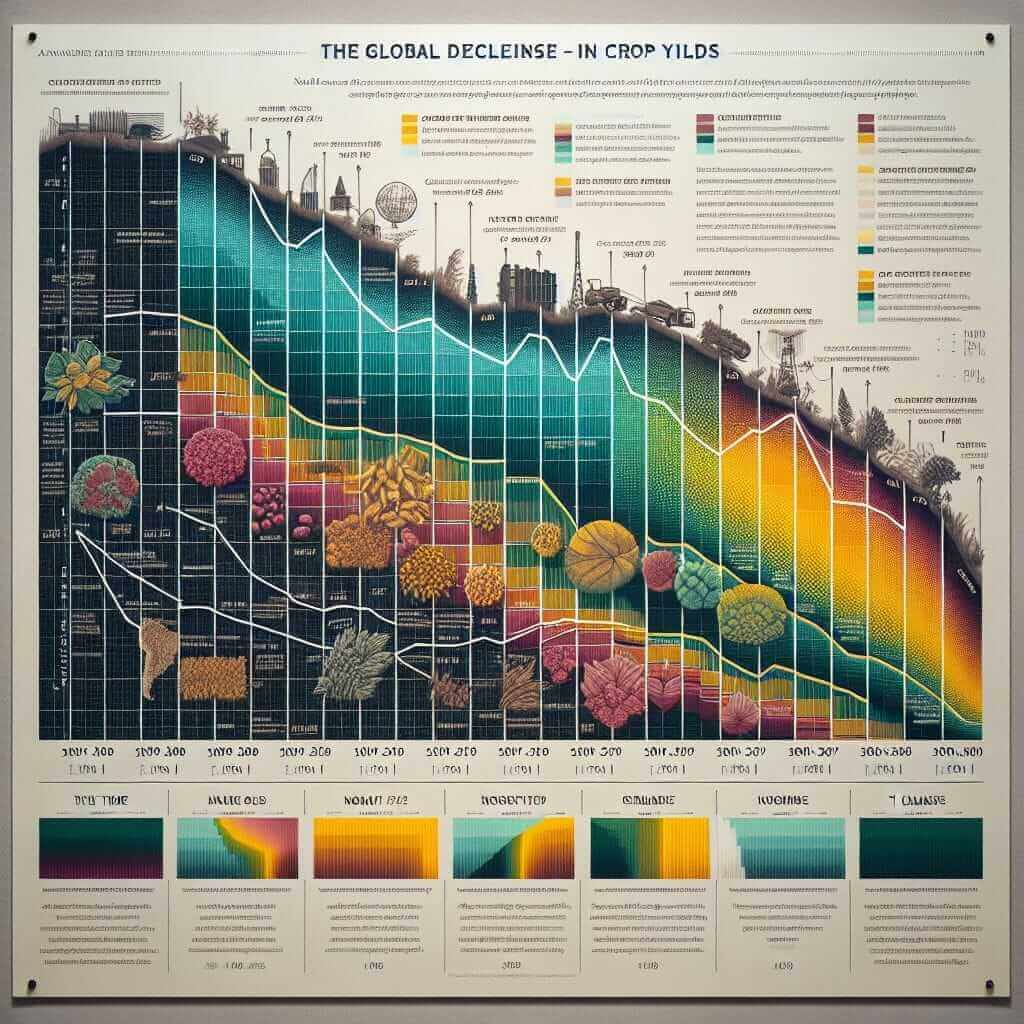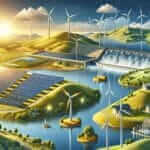Understanding the reading component of the IELTS exam can substantially boost your overall score. One recurring theme in the IELTS Reading section is the impact of climate change on various sectors, including agriculture. Based on historical data from the IELTS archives, climate change and its economic impacts are popular topics, often tested due to their global relevance and significance.
This article not only provides you with a sample reading passage and questions but also offers insights to enhance your IELTS Reading skills. We aim to deliver a resource that thoroughly prepares you for the exam by focusing on a crucial and engaging topic: the economic impacts of climate change on agriculture.
Reading Passage
The Economic Impacts of Climate Change on Agriculture
Climate change poses a significant challenge to the agricultural sector worldwide. The economic impacts are multifaceted, directly influencing crop yields, farmers’ incomes, and food prices. This reading passage will delve into these effects and explore how different regions are adapting to the changing climate.
Global Crop Yields
Several studies have reported a decline in global crop yields due to increased temperatures, altered precipitation patterns, and the prevalence of droughts. Crops such as wheat, corn, and rice, which are staple foods, are particularly susceptible. For instance, a study by the International Food Policy Research Institute (IFPRI) found that for every 1°C rise in temperature, wheat yields could decline by up to 6%. As a result, countries that rely heavily on agriculture for both food and economic stability are facing heightened risks of food insecurity and economic instability.
Economic Stability of Farmers
Climate change also impacts the economic stability of farmers. Unpredictable weather patterns and extreme weather events can devastate crops, leading to significant financial losses. In developing countries, where agriculture often forms the backbone of the economy, this can exacerbate poverty and force farmers into cycles of debt. For example, in regions such as Sub-Saharan Africa, smallholder farmers experience increased vulnerability to climate-related risks, thereby affecting their income levels and overall livelihood.
Food Prices and Supply Chains
Another critical economic impact of climate change on agriculture is the fluctuation in food prices. As crop yields become more uncertain, supply chains are disrupted, which can increase the cost of food commodities. The Food and Agriculture Organization (FAO) highlighted that such price volatility disproportionately affects low-income populations, who spend a larger share of their income on food. Consequently, this exacerbates global inequality and poses challenges to food distribution networks.
Adaptation Strategies
Despite these challenges, various regions are adopting strategies to mitigate the economic impacts of climate change on agriculture. These include developing drought-resistant crop varieties, improving irrigation techniques, and implementing better land management practices. Governments and international organizations are also investing in research to support sustainable agricultural practices that can withstand climate-induced changes.
 The Economic Impacts of Climate Change on Agriculture
The Economic Impacts of Climate Change on Agriculture
Reading Questions
Questions 1-5: Multiple Choice
-
According to the passage, what is the impact of a 1°C rise in temperature on wheat yields?
- A. No significant change
- B. Increase by up to 6%
- C. Decline by up to 6%
- D. Decline by up to 10%
-
Which region’s farmers are particularly vulnerable to climate-related risks?
- A. North America
- B. Sub-Saharan Africa
- C. Western Europe
- D. South-East Asia
-
How does climate change influence food prices, according to the passage?
- A. It stabilizes food prices.
- B. It causes price volatility.
- C. It decreases food prices.
- D. It has no impact on food prices.
-
What adaptation strategy is mentioned for mitigating the economic impacts of climate change on agriculture?
- A. Developing drought-resistant crop varieties
- B. Reducing irrigation
- C. Eroding land management
- D. Increasing crop yield
-
Who highlighted that price volatility affects low-income populations?
- A. International Food Policy Research Institute (IFPRI)
- B. Food and Agriculture Organization (FAO)
- C. World Health Organization (WHO)
- D. United Nations (UN)
Questions 6-10: True/False/Not Given
- Climate change has no effect on farmers’ income.
- Wheat, corn, and rice are resilient to climate change.
- Climate-induced supply chain disruptions can increase the cost of food commodities.
- Governments are investing in research to support unsustainable agricultural practices.
- Sub-Saharan Africa experiences fewer climate-related risks than other regions.
Answer Key
- C
- B
- B
- A
- B
- False
- False
- True
- False
- False
Explanation of Answers
- The passage states that for every 1°C rise in temperature, wheat yields could decline by up to 6%.
- The passage mentions that farmers in Sub-Saharan Africa are particularly vulnerable.
- The passage highlights that climate change causes price volatility.
- Developing drought-resistant crop varieties is specifically mentioned as an adaptation strategy.
- The Food and Agriculture Organization (FAO) is noted for highlighting the effects of price volatility on low-income populations.
- The passage indicates that climate change impacts farmers’ income, making this statement false.
- The passage lists wheat, corn, and rice as particularly susceptible to climate change, thus this statement is false.
- The passage states that supply chain disruptions due to climate change can increase food prices, making this true.
- The passage mentions investments in sustainable agricultural practices, contradicting this statement.
- The passage highlights Sub-Saharan Africa as facing significant climate-related risks, making this statement false.
Common Mistakes and Tips
Mistake: Misinterpreting data or neglecting to understand the context of specific terms and phrases is common in the Reading section.
Tip: Carefully analyze the passage and question to ensure comprehension. Practice skimming and scanning techniques to quickly locate relevant information.
Vocabulary
- Multifaceted (adj.) /ˌmʌltiˈfæsɪtɪd/: Having many aspects.
- Prevalence (n.) /ˈprɛvələns/: The fact or condition of being prevalent; commonness.
- Exacerbate (v.) /ɪɡˈzæsərbeɪt/: To make a bad situation worse.
- Volatility (n.) /ˌvɒləˈtɪləti/: Liability to change rapidly and unpredictably.
Grammar
Conditional Sentences: Used to speculate about potential outcomes influenced by climate change.
Example: “If temperatures rise by 1°C, wheat yields could decline by up to 6%.”
Advice for High IELTS Reading Score
- Practice Regularly: Consistent practice helps improve reading speed and comprehension.
- Understand Question Types: Familiarize yourself with different types of questions in the Reading section.
- Manage Time Effectively: Allocate time wisely to ensure all questions are answered.
- Use Scanning Techniques: Quickly locate key information in the passage without reading every word.
By thoroughly understanding the economic impacts of climate change on agriculture and practicing with real-world examples, you’ll be better equipped to tackle similar topics in the IELTS Reading section. For more insights, explore related articles such as Economic Impacts of Climate Change on Agriculture and Effects of Climate Change on Agriculture. Happy studying!


